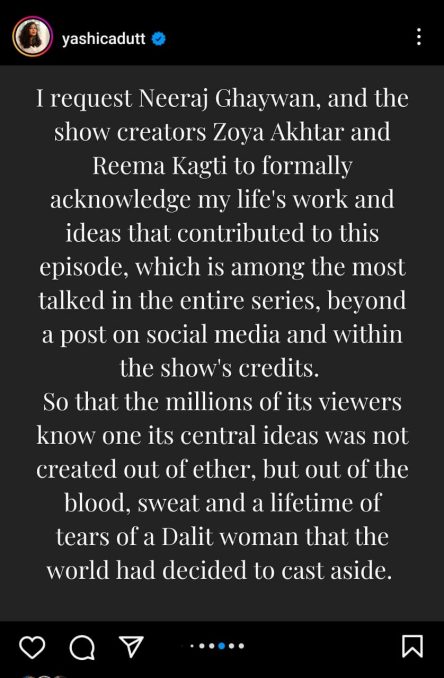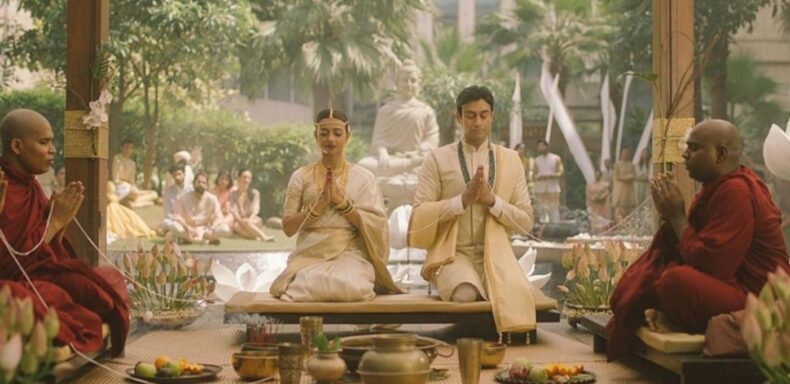In recent years, the entertainment industry has come under increasing scrutiny for its portrayal of marginalized communities, often emphasizing the need for accurate and sensitive portrayal. The latest controversy surrounding the portrayal of Dalit marriage in “Made in Heaven” Part 2 highlights once again the importance of responsible storytelling and the potential impact it can have. for the society.
The popular Indian web series “Made in Heaven”, produced by Amazon Prime Video, explores the complex lives of wedding planners dealing with their personal and professional challenges. The series has received critical acclaim for its complex characters and engaging storytelling that tackles various social issues. However, in the second season, an episode titled “Marriage Made in Heaven” caused controversy due to the way a Dalit marriage was handled. The episode tells the story of a Dalit groom and his upper caste bride as they prepare for their wedding. As the series delves into their lives, it attempts to highlight the stark disparities and deep-rooted prejudices that persist in Indian society. While the intention to shed light on caste-based discrimination is commendable, critics argue that the execution does not effectively communicate the seriousness of the problem.
Yashica Dutt, a Dalit author and journalist, was one of the first to voice her concerns about the episode. She expressed disappointment with the way the show portrayed Dalit’s experience, saying that it failed to capture the nuances of class discrimination and that she instead reduced the issue to a simple plot. Dutt’s critique highlights the greater challenge of portraying marginalized communities in a way that doesn’t sensationalize their struggles or downplay their importance.

Neeraj Ghaywan, the episode’s director, defended his approach, saying he wanted to strike a balance between highlighting class-based discrimination and maintaining the entertainment value of the show. programme. He argues that the complexity of the matter makes it difficult to describe it as a whole within the confines of an episode. However, this defence has sparked discussions about creators’ responsibility to prioritize accurate presentation over commercial considerations.
At the heart of the debate was a fundamental question: Can entertainment media really address important social issues without compromising their artistic integrity? This dilemma doesn’t just happen with “Made in Heaven,” but is symbolic of a larger challenge that content creators often face. Finding the right balance between raising awareness and creating compelling stories is still a tough business.
Critics suggested that the episode could benefit from more extensive research and consultation with experts from the Dalit community. Authenticity in storytelling can only be achieved through genuine interaction with the experiences and perspectives of the people involved. By engaging disadvantaged people, creators can ensure their stories are relevant to the communities they want to represent.
The controversy surrounding the Dalit marriage episode also highlights the growing influence of social media in shaping public discourse. In the age of online activism, marginalized communities are finding their voices amplified, holding content creators accountable for their portrayals. This new era of audience participation underscores the need for content that reflects the diverse realities of society and acknowledges the lived experiences of all its members.
While the show’s attempt to address caste-based discrimination is laudable, it raises questions about the efficacy of such representations in effecting meaningful change. Striking the right balance between responsible storytelling and engaging narratives remains an ongoing challenge, one that requires content creators to approach their craft with sensitivity, research, and a commitment to authenticity. As discussions around this controversy continue, they contribute to a broader dialogue about the role of media in shaping perceptions, challenging biases, and fostering societal progress.












